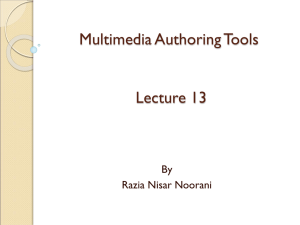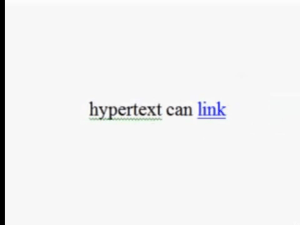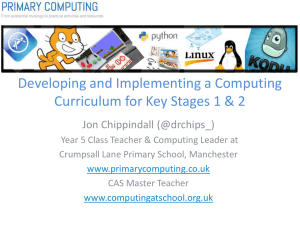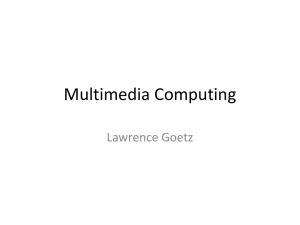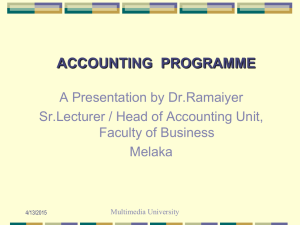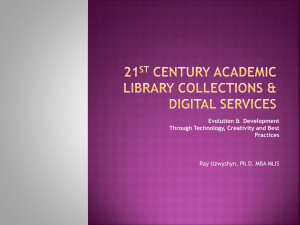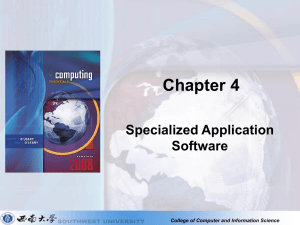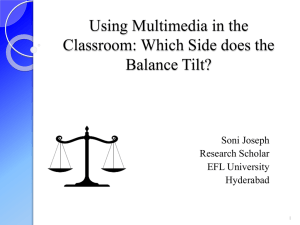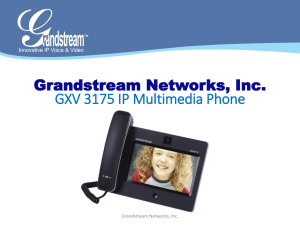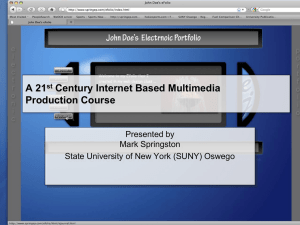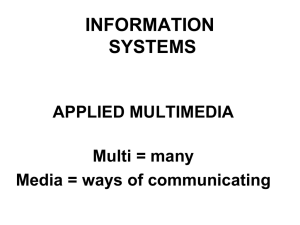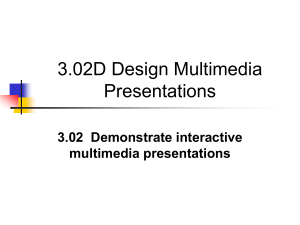Chap00-CMPD 434-Course Outline - MetaLab
advertisement
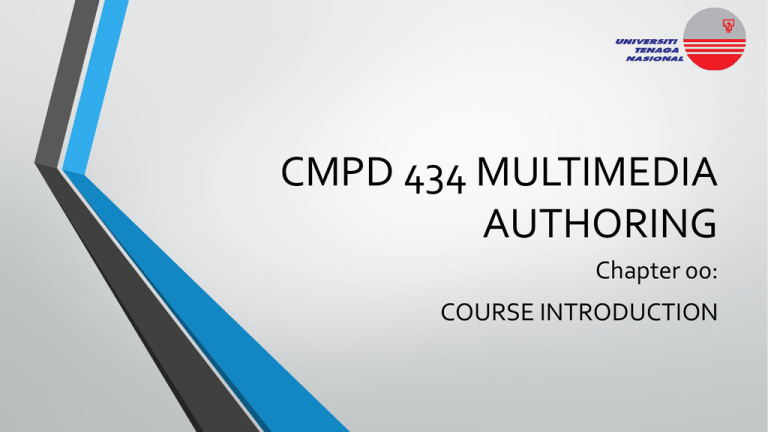
CMPD 434 MULTIMEDIA AUTHORING Chapter 00: COURSE INTRODUCTION About The Course • Demonstrate an understanding of basic theoretical concepts underlying the use of multiple media. • Demonstrate an understanding of the interactive multimedia technology. • Describe the standard development metaphors used in authoring software, and discuss the advantages and disadvantages of each. • Demonstrate knowledge of different concepts of the selected authoring program. • Enhance students’ understanding on the underlying concepts related to the creating and editing of multimedia elements, and multimedia project management. • Be able to design and create a multimedia application using the authoring program in a field of interest. Learning Outcomes At the end of this course, the student should be able to: • Identify the major technological/technical components behind Multimedia. • Incorporate media forms including text, graphics, animation, video, and sound. • Understand and apply team concepts to utilize diverse skills required in multimedia project development. • Design storyboards for the layout of multimedia projects. • Prepare interactive multimedia products using authoring package. • Identify and analyze the technological impediments to multimedia authoring, production and, distribution. • Understand ethical issues related to Multimedia. Course Coordinator & Lecturer RajeshKumar a/l Sugu • Email: • rajesh@uniten.edu.my • Room No: • TA-3-211 • Course Web Folder: • Metalab.uniten.edu.my/~rajeshkumar • Telephone: • 03-8921 2020 ext 5046 Course Content • Chapter 00 : Course Introduction • Chapter 01 : Introduction to Multimedia and Authoring Process • Chapter 02 : Multimedia Elements • Chapter 03 : Multimedia Authoring Process I • Chapter 04 : Multimedia Authoring Process II • Chapter 05 : Multimedia Authoring Process III • Chapter 06 : Multimedia Authoring Process IV • Chapter 07 : Issues Related to Distribution of Multimedia TextBooks / References Main: • T. Vaughan, "Multimedia: Making It Work 8th Edition, 2010", McGrawHill/Osborne Additional: • McGloughlin Stephen, Multimedia: Concepts and Practice. Prentice Hall. • P. Havaldar, G. Medioni, Multimedia Systems: Algorithms, Standards, and Industry Practices. • Adobe Director Manual/Guide. • Adobe Photoshop Manual/Guide • Adobe Illustrator Manual/Guide. Course Assessment Type of Assessment Percentage (%) Class Project 20 1 Class Project Quizzes 10 4 quizzes (The best of two) Lab Test 10 • Lab assignment Mid-Term 20 Tentatively in Week 7 Final exam 40 All chapters Remark Class / Practical Lecture: • Thursday 10.00am - 11.00am BW-2-R05 • Thursday 02.00pm - 04.00pm BW-1-R06 Lab: • Section 1B Thursday 04.00pm – 06.00pm BW-4-L17 • Section 1A Wednesday 09.00am – 11.00am BW-4-L174 Class Project • There will be 1 mini project (10 weeks) in which you will have to work together to create some kind of multimedia product. • In a group of 2 to 3 students • Project question will be release on 3rd Week. Laboratory • • • (ONE) Lab session per week Start on week 3 In the lab you will learn concepts pertaining to authoring tools (Adobe Director). This will be helpful to your course project. • There will be assignments to test what you have learned in the lab every week. • Don’t miss any unless you wish to be at a disadvantage. Quizzes • Four (4) quizzes will be administered in the course during lecture hours • Best two will be calculated for carry mark • You might also be given a pop-quiz any time during lecture hours. • Be prepared and do not be absent • No repeat quiz will be given for absentees unless supported by very strong reasons Attendance • Attendance is compulsory and will be taken regularly. • Lecturer will tick the attendance. • MC or show cause letter must be provided upon absence. • 1st warning letter will be issued if do not attend THREE times continuously OR attendance < 80%. • Once issue 3rd warning letter, BARRED from sitting final examination. • If you are absent from lecture due to : • sickness : MC is required • emergency : letter of guardian is required • Any MC or letter should be given to the lecturer on the next day. Class Policy • Dress in proper attire corresponding to Universiti Tenaga Nasional dress code. • There will be NO make-up quiz except with a valid reason. • There will be NO make-up Mid Term Exam. If you are absent with a valid reason, the 20% will automatically be added to your final exam. • The lecturer reserves the right to give pop-quizzes whenever deemed appropriate. Latecomers will not get extended time. • Cheating and any attempt thereto will not be tolerated and penalized according to the seriousness of the offense. • All assignments must be submitted on time. Deducted of marks or zero mark will be given for the late submission. Good Luck and All The Best
